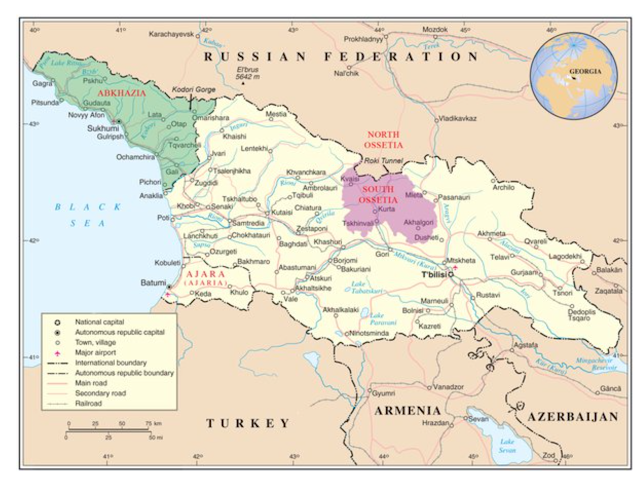Now with 2024 update
The most transparent cryptography experts are those that work in academia. Matthew D. Green is a professor of computer science at Johns Hopkins University. Others work in industry and have prominent public profiles like Bruce Schneier (British Telecom) and Burt Kaliski (Verisign now RSA). Craig Gentry works for IBM; he developed fully homomorphic encryption about 10 years ago.
Some cryptographers have sub rosa personal lives, yet maintain updated websites including disclosure of who and where they have worked in the recent and less-recent past. Their websites aren't just blogs. They have plenty of well-organized content. Good examples are the steganography guys, Neil F. Johnson and Gary Kessler, who work as consultants and sometimes as longer-term contractors.
Nick Szabo is very cryptic!
It isn't easy to discern what Nick did or does for a living, or anything else about him, even with with pro-level google-fu! Nick Szabo has an undergraduate degree in computer science from the University of Washington in Seattle and a professional degree in the law (Juris Doctor, which is different than a PhD in law) from George Washington University. In the United States, a law degree is a three-year program of study. In one of Nick Szabo's Unenumerated blog posts, he acknowledged being a law school student in 2006. Let's assume he graduated in 2008.
Given his law degree, I would suggest checking to see if Nick is a member of the bar in any state. He may not be, as plenty of people with law degrees don't practice law although they use their knowledge of it in their work, and are often hired because of it. Examples include legal departments of financial services firms (both fintech and traditional), manufacturing companies, and healthcare of all sorts.
If one were to want to develop a digital currency, a high level of competency in computer science as well as a law degree seem ideal, although some knowledge of economics would help too. Many patent attorneys have similar backgrounds, e.g. a physics or electrical engineering undergraduate degree, three years or more of working in the field, then law school.
Nick has an extensive catalog of essays and a blog, but no insights are to be gleaned explicitly regarding his occupation. I can provide merely a single data point. Nick Szabo was retained as a consultant for about a year by Vaurum, a Silicon Valley start-up, from 2014 to 2015. Via The New York Times, Decoding the enigma of Satoshi Nakamoto and the birth of bitcoin:
In the beginning of 2014, Mr. Szabo joined Vaurum, a Bitcoin start-up based in Palo Alto, California, that was operating in stealth mode and that aimed to build a better Bitcoin exchange. After his arrival, Mr. Szabo helped reorient the company to take advantage of Bitcoin’s capability for so-called smart contracts, which enable self-executing financial transactions.
Wei Dai
As for Wei Dai, I know less. He is a Less Wrong contributor, see Overview for Wei Dai: Less Wrong with a huge karma score of 21,775 points! Apparently, Wei Dai is articulate and persuasive; however, no one earns a living from Less Wrong with the exception of Eliezer Yudkowsky. If I were Peter Thiel, I would have put my money on Wei Dai rather than Eliezer. Wei Dai has a formal education in computer science AND has clearly 'cracked the code' necessary to receive acclaim from the fussy, idiosyncratic yet often intelligent Less Wrong crowd.
Wei Dai has a nice website, Wei Dai's home page. Perhaps one could infer his occupation based on his expressed interests, e.g. his many years of activity in the USENET crypto-optimization forum.
Truly, it would be difficult to go wrong with most of the individuals associated with the 1990s Cypherpunk group, sometimes known as Extropians, to which Wei Dai and Nick Szabo both belonged. Even the most obstreperous members ("toxic" in today's terminology) such as Larry Detweiler, have an impressive record of accomplishment. Detweiler had a weird obsession with Nick Szabo and tentacles! More on that in another post.
Cryptocurrency talk
Be aware, you are not the first person who has wondered, "Nick Szabo, Wei Dai... Who are their employers?!". That links to a BitcoinTalk forum post. Regulars on IRC-style bitcointalk.org were intimidating when I visited. That's putting it mildly.
Mircea Popescu, may he rest in peace, was the domain owner of bitcointalk. He was voluble, clever, and well-informed about many matters in addition to cryptocurrency, although bitcoin was his path to fortune. He was banned after a few months of viciously criticizing Izabella Kaminski of the Financial Times. They got in HUGE arguments on Twitter!
Mircea Popescu was kind to me during his brief time on Twitter. He patiently explained DAGs (directed acyclic graphs) and other concepts to me. He told me, "You are a nice girl." That was thoughtful, as I was a childless, 48 year old widow. Mircea was a life interrupted: He was reported to have drowned while swimming in the ocean near his beachfront home in Costa Rica in 2021.
I found an fortuitously relevant post on Mircea's Trilema blog just now! It mentions both Michael O. Church (whom I will not try to explain...Mircea captures O's essence quite well) AND Quora AND one of my least favorite Wikipedia editors, Flyer22. We frequently argued. She was fawned over, reborn at least once, and in the midst of a huge argument with a transgender woman, Flyer22 died so she couldn't be banned for transphobic remarks.
Who is Nick Szabo?
Wei Dai remarked, on the record, that he isn't Nick Szabo:
I'm not Szabo but coincidentally we attended the same university and had the same major and graduated within a couple years of each other.
Wei Dai is referring to the University of Washington, where Nick Szabo acknowledges having graduated with a bachelor's degree in computer science. Ah, but Nick has TWO degrees! Perhaps Wei Dai was referring to George Washington University and a Juris Doctor degree? No, I don't think so. Wei Dai seems quite precise with his English usage. "Major" is associated with an undergraduate degree. Juris Doctor is a professional degree, requiring completion of a four-year undergraduate program prior to applying for law school admission. Also, one does not "major" in a field for a graduate degree or professional degree.



